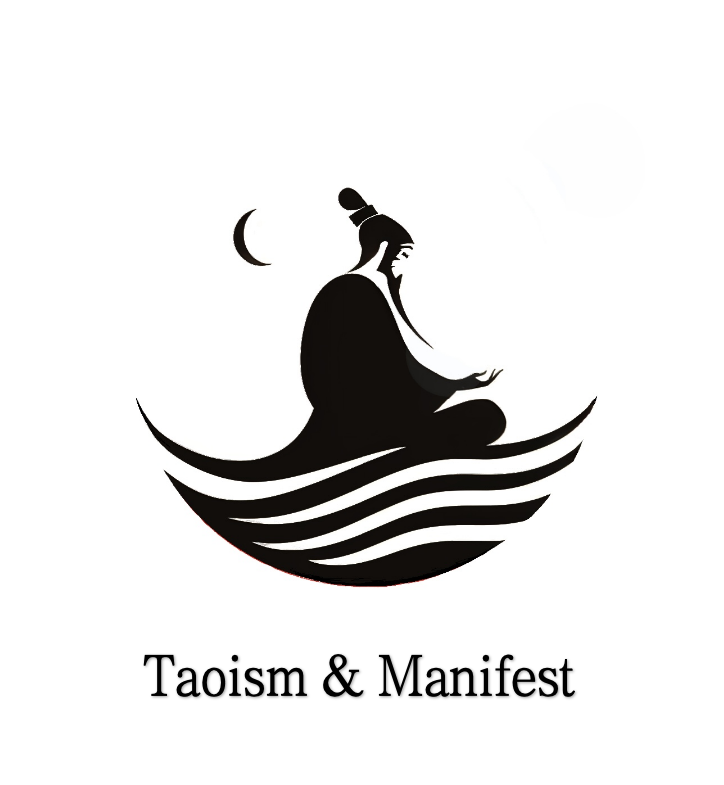
How Embracing Wu Wei Makes Work Less Stressful

Many workers today feel stressed by pressure and deadlines. Many studies show that stress at work remains high.
Wu Wei is not about doing nothing or simply “lying flat.” Instead, Wu Wei means acting with intention and maintaining calmness. It’s about flowing naturally with each situation rather than resisting it. Wu Wei is not giving up; it’s a mindful approach that helps individuals find balance and peace by responding thoughtfully. Embracing Wu Wei can help workers reduce anxiety, stay composed, and maintain a healthy balance between their goals and well-being. By incorporating Wu Wei principles, anyone can begin to feel more centered and calm at work through small, deliberate changes.
Key Takeaways
Wu Wei means acting in a calm and natural way. You do not force things. This helps lower stress and worry at work.
Letting go of control helps you go with the flow. This helps workers stay balanced. It also helps them focus better. This can make mental health better.
Practicing mindfulness means paying attention to now. This lowers stress. It helps people think before they act.
Doing simple habits each day can help. Mindful task management is one habit. Putting important work first is another. These habits make jobs easier and less stressful.
Beating perfectionism and fear of control is helpful. It lets workers build new habits. These habits help people stay calm and make steady progress.
Wu Wei and Anxiety

Concept of Anxiety at Work
A lot of people talk about anxiety at work today. News and social media often mention burnout and stress. Many workers feel pressure from deadlines and heavy workloads. Some have problems with coworkers or bosses. These things make people feel anxious. Organizational psychology research lists some main causes of workplace anxiety:
Long hours and feeling tired from too much work
Needing to finish tasks very quickly
Bad relationships with coworkers or bosses
Not having enough help or tools at work
Problems that happen during daily work
Anxiety at work does more than just make people upset. It can hurt mental health and job performance. Many workers feel anxious every day but do not talk about it. They worry others will judge them or they will not get promoted. Anxiety can make people grumpy, skip meetings, or miss work. Studies show high stress and anxiety lower how much people get done and how happy they are at work. If anxiety lasts a long time, people may miss work or come in but cannot focus.
Wu Wei’s Approach
Wu Wei gives a new way to deal with anxiety and stress. Instead of fighting problems, Wu Wei teaches people to act calmly and go with the flow. This Taoist idea means staying calm and not using extra effort. Wu Wei is not about doing nothing. It is about acting when the time is right and not trying to control everything.
The main idea of Wu Wei is to accept change and not make strict plans. People who use Wu Wei watch their thoughts and try not to judge themselves. They try to stay in the moment. Some spend time outside or use mindful breathing to feel better. Wu Wei helps save energy and lowers anxiety by helping people live in harmony with life. At work, this means not needing to be perfect, working at a steady pace, and trusting things will work out. Wu Wei helps mental health and lets people find balance, even when stress feels too much.
Aspect |
Description |
|---|---|
Metaphysical Basis |
Wu Wei matches the Tao, the natural force of the universe. |
Ethical Principles |
Wu Wei values being humble, simple, and peaceful. |
Practical Action |
Wu Wei means acting at the right time, not forcing things. |
Core Principles of Wu Wei
Letting Go of Control
A lot of people want to control everything at work. This can make them feel stressed and upset. Wu Wei teaches people to let go sometimes. Instead of forcing things, people learn to trust what happens. This is called nonattachment. It means not holding on to results or being scared of mistakes. Studies show that letting go and nonattachment help people feel better and less anxious. The table below shows how these ideas help at work:
Letting go is not the same as quitting. It means facing problems and using mindfulness. This helps people feel more in control and less stressed.
Going with the Flow
Wu Wei is about doing things without forcing them. People who use Wu Wei do not fight hard against problems. They use their skills and change when needed. This is called going with the flow. Many leaders say flow helps them do better at work. Flow happens when your skills fit the job. It brings new ideas, energy, and happiness.
Flow makes people like their jobs more.
Flow helps people be creative and do better work.
Flow needs balance. Too much flow can make you tired.
Wu Wei and going with the flow help people not get burned out. They learn to change and find easier ways to work. Unlike Western ideas that want control, Wu Wei likes working with nature. This lowers stress and helps people enjoy their jobs.
Presence and Acceptance
Being present is very important in Wu Wei. Mindfulness and acceptance help people pay attention to now. Studies show that mindfulness at work lowers stress and helps people focus. Acceptance-based therapy teaches people to accept worry and keep working. This makes people less anxious and more involved at work.
Mindfulness and being present help people see their thoughts without judging them. They learn to accept feeling bad and keep going. Wu Wei uses mindfulness to help people act easily and find flow. People who practice being present feel calmer and think more clearly. They handle problems by accepting them, not fighting them. This helps them stay balanced and get things done, even when work is busy.
Applying Wu Wei Daily

Respond, Don’t React
Wu Wei teaches workers to think before they act. When things get stressful, people often react fast without thinking. This can make stress worse and hurt friendships at work. Responding means stopping for a moment, noticing your feelings, and choosing what to do next. Mindfulness is important for this. Workers who use mindfulness can see their thoughts and feelings without judging them. This helps them act calmly and make better choices.
Here are some examples of responding instead of reacting at work:
If a coworker is upset about not getting a promotion, a mindful worker listens and supports them instead of arguing or ignoring them.
When a client is unhappy, a worker can stay calm, listen, and offer good ideas instead of getting upset.
During a tough phone call, a worker can breathe deeply, listen, and try to solve the problem together.
Wu Wei matches these actions by helping workers go with the flow at work. Mindfulness helps workers not get caught up in outside stress. They can act from a place of calm. This leads to better friendships, less stress, and more flow at work.
Wu Wei helps people act with life, not against it.
Mindfulness helps workers stay in the moment and pick actions that fit their values.
Responding instead of reacting lowers stress and helps people work with ease.
Note: When you feel stressed, stop and take three slow breaths. Notice how you feel and pick your next step carefully.
Simplify and Prioritize
Many workers feel stressed by long lists and too much to do. Wu Wei teaches people to make things simpler and focus on what matters most. Workers can use Wu Wei each day to organize tasks and feel less stress. Making a list and sorting tasks by importance helps workers know what to do first. The Eisenhower Matrix is a tool that helps sort tasks by what is urgent and important.
Make a list and group tasks by work, personal, and other things.
Give each task a priority using tools like the Eisenhower Matrix or Most Important Task method.
Break big tasks into small steps to make them easier.
Do the most important tasks when you have the most energy.
Group similar tasks to help you focus and not switch too much.
Take breaks often to rest and keep your mind calm.
Use project tools to keep track of tasks and deadlines.
Say "no" to things that do not match your main goals.
Give away or automate tasks that repeat to save time.
Check your priorities often to stay balanced and flexible.
Good time management and setting priorities help workers feel less anxious and happier at work. Workers who do one thing at a time and set limits feel less stress and more peace. Using tools like the Pomodoro Technique or time blocking helps people work with ease and stay focused.
Tip: At the start of your day, pick three top tasks. Do these first before moving on to other work.
Wu Wei helps workers feel less stress by supporting flow, mindfulness, and balance. By using these habits each day, workers can feel calm, get more done, and enjoy work more.
Overcoming Obstacles
Perfectionism
Many workers deal with perfectionism at work. This way of thinking makes them try too hard and want to control everything. Wanting things to be perfect can make people feel more stress and worry. When things go wrong, they may panic or get upset. Trying so hard all the time stops Wu Wei, which is about doing things easily and naturally. Perfectionism makes people tense and keeps them from relaxing or liking their job. Workers can stop this by learning new ways to think and act.
1. Notice and question thoughts that say things must be perfect.
2. Make SMART goals so your hopes are not too high.
3. See mistakes as chances to learn and get stronger.
4. Give yourself a time limit so you do not work too long.
5. Listen to helpful feedback and use it to get better.
6. Be proud of what you finish, not just perfect work.
7. Stay away from things or people that make you feel you must be perfect.
8. Keep balance by thinking about your actions, having good habits, and getting help from others.
Fear of Letting Go
Being afraid to let go of control shows up as micromanaging, making strict rules, and not wanting to share work. Workers may worry about not getting credit or making mistakes. This fear brings more stress and stops the easy flow of Wu Wei. Leaders who hold on too tight can hurt team ideas and make people feel bad. Letting go helps people work together and trust each other. When workers share jobs and accept change, they make room for growth and peace of mind. Wu Wei teaches people to act with trust and be themselves, which lowers stress and worry.
Not working well with others
Making too many rules
Not letting others help
These actions make people more anxious and stop the flow. Letting go helps people feel calm and take care of themselves.
Building New Habits
Making new habits that fit Wu Wei takes time and practice. Workers can begin with small steps and let new habits grow slowly. After a while, these habits feel easy and help people work better. The steps are to relax, let go of pride, and let things happen without pushing too hard.
1. Grow small good habits until they feel normal.
2. Do them often so they become part of your day.
3. Keep things simple and do not force results.
4. Let your values lead you and go with the flow.
5. Use reminders and routines to help you change.
6. Relax and let go of stress so Wu Wei can show up.
7. Be open and patient as you build new habits. 8. Let changes happen slowly and in their own time.
Tip: Be patient and flexible. Let your habits grow slowly, like plants, without hurrying.
Using Wu Wei helps workers feel less stress and stay calm at work. Many people say Wu Wei brings peace of mind and steady work. They feel less worried, can focus better, and have better friendships. Companies that use WuWei see workers who are more creative and care more about their jobs. To begin, anyone can stop, take a breath, and let go for a bit. This easy step helps you feel calm and less stressed. It also helps you find flow and peace in your mind. Wu Wei teaches people to balance their goals and feel calm inside, so work feels easier and less stressful.
-
WuWei helps people:
Stay calm
Make thoughtful choices
Keep their minds peaceful
Try using one WuWei habit today. See if it helps you feel less stress and more calm at work.
FAQ
What does Wu Wei mean in the workplace?
Wu Wei means working with less force and more awareness. People use their energy wisely. They do not fight every problem. They act when needed and let things happen naturally.
Can Wu Wei help with burnout?
Yes. Wu Wei helps people avoid burnout by teaching them to rest and work in balance. They learn to notice stress early and take breaks. This keeps their minds and bodies healthy.
Is Wu Wei the same as doing nothing?
No. Wu Wei does not mean being lazy. People still have goals. They act with purpose and respond to changes. Wu Wei means not forcing things that do not fit.
How can someone start using Wu Wei at work?
Start with small steps. Try deep breathing before meetings. Focus on one task at a time. Let go of the need to control every detail. Over time, these habits make work feel easier.
Does Wu Wei work for team projects?
Yes. Wu Wei helps teams work together better. Team members trust each other and share tasks. They solve problems calmly. This makes teamwork smoother and less stressful.





